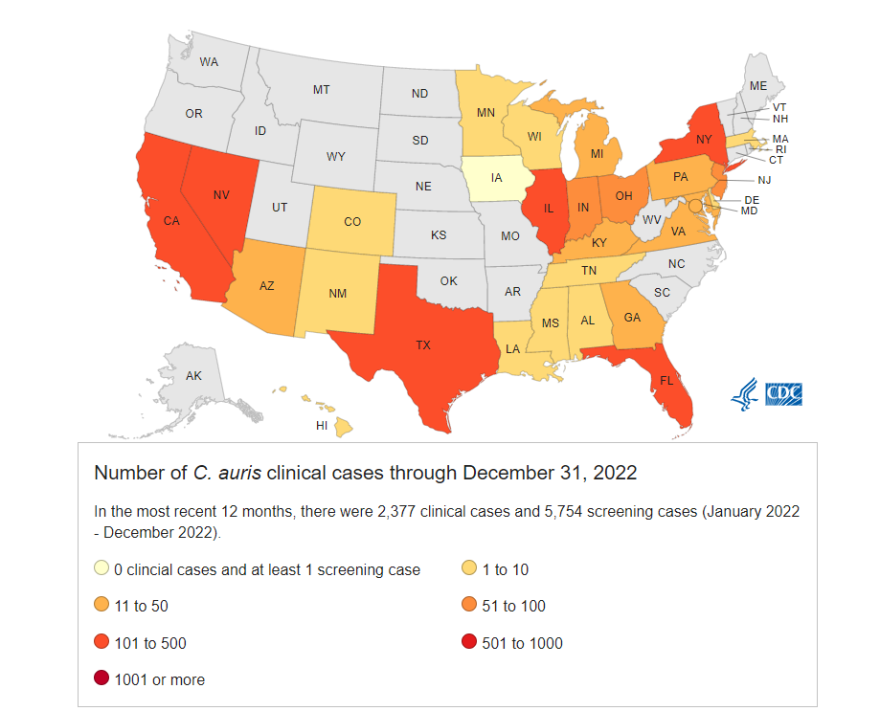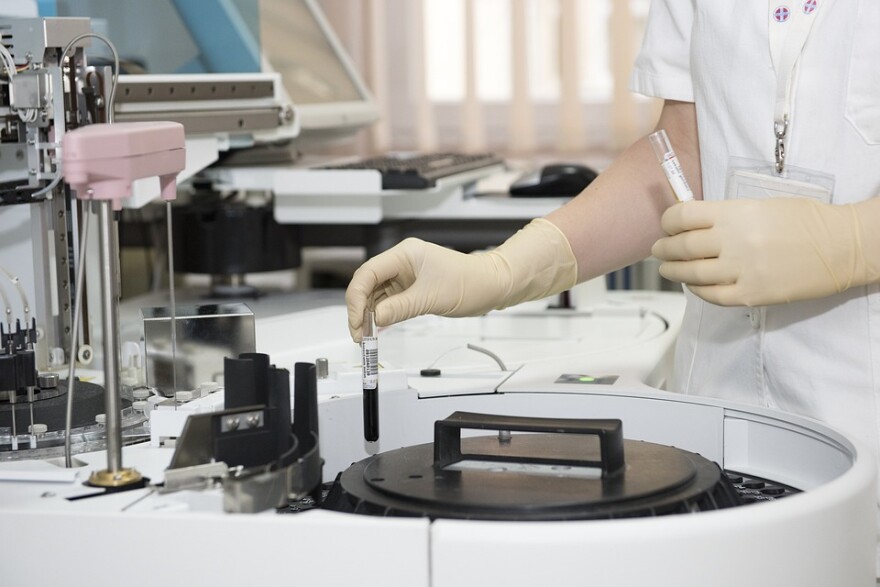The Centers for Disease Control and Prevention has identified an emerging fungus that health experts say presents a serious global health threat.
The CDC says Candida auris, also known as C. auris, is an urgent antimicrobial resistance threat, spread at an alarming rate in U.S. healthcare facilities in 2020-2021. Experts say the fungus it is often resistant to multiple antifungal drugs, spreads easily in healthcare facilities, and can cause severe infections with high death rates. So far, six cases have been identified in Alabama.
See the CDC map tracking the cases.
According to a press release on its website, the Centers for Disease Control and Prevention says C. auris is not a threat to healthy people. The CDC says people who are very sick, have invasive medical devices, or have long or frequent stays in healthcare facilities are at increased risk for acquiring C. auris.
“The rapid rise and geographic spread of cases is concerning and emphasizes the need for continued surveillance, expanded lab capacity, quicker diagnostic tests, and adherence to proven infection prevention and control,” said CDC epidemiologist Dr. Meghan Lyman.

The CDC says C. auris has spread in the United States since it was first reported in 2016. Clinical cases have increased each year since 2016, with the most rapid rise occurring during 2020-2021. CDC has continued to see an increase in case counts for 2022.
Health experts say C. auris case counts have increased for many reasons, including poor general infection prevention and control (IPC) practices in healthcare facilities. Case counts may also have increased because of enhanced efforts to detect cases, including increased colonization screening, a test to see if someone has the fungus somewhere on their body but does not have an infection or symptoms of infection.
The timing of this increase and findings from public health investigations suggest C. auris spread may have worsened due to strain on healthcare and public health systems during the COVID-19 pandemic.
The CDC’s Antimicrobial Resistance Laboratory Network, which provides nationwide lab capacity to rapidly detect antimicrobial resistance and inform local responses to prevent spread and protect people, provided some of the data for this report.
The CDC says it worked to significantly strengthen laboratory capacity, including in state, territorial, and local health departments, through supplemental funding supported by the American Rescue Plan Act.
These efforts include increasing susceptibility testing capacity for C. auris from seven Regional Labs to more than 26 labs nationwide.

